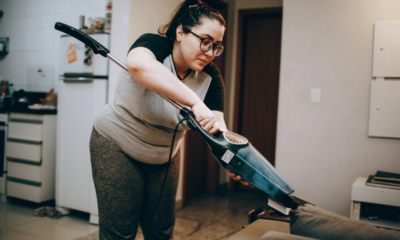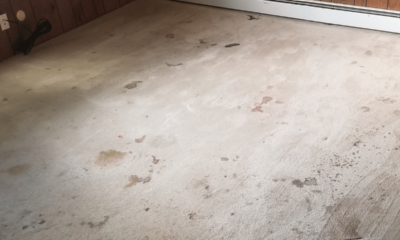Misc
Machete Ban Victoria: What It Means, Why It Happened and Why Experts Say It’s Not Enough
The Machete Ban in Victoria marks one of the state’s most decisive crime-control measures in recent years. Introduced after a wave of violent youth incidents, the new law reclassifies machetes as prohibited weapons—a bold response to growing community concern about knife and blade crimes.
But experts warn this ban may treat the symptom rather than the cause. Beneath the headlines lies a deeper story of youth disengagement, social isolation, and community strain—challenges that weapon laws alone cannot solve.
Quick Fact:
- Victoria’s crime rate jumped 18.3% in 2025, reaching 483,583 recorded incidents—the highest ever reported by the Crime Statistics Agency (CSA).
- Eighteen teenagers have been killed by edged weapons since 2020, sparking public outrage and the creation of the Machete Ban Victoria law.
What Is the Machete Ban in Victoria?
The Machete Ban in Victoria makes it illegal to possess, sell, or advertise a machete without a valid exemption. Introduced in 2025 under the Control of Weapons Act, the law classifies machetes as prohibited weapons.
Offenders face up to two years in prison or fines over $47,000, according to the Victorian Government.
Key points of the Machete Ban Victoria:
- Machetes are now listed as prohibited weapons under Victorian law
- Possession or sale without exemption is an offence
- Maximum penalties include 2 years’ imprisonment or fines over $47,000
- Amnesty bins allow voluntary weapon surrender across police stations
Why Victoria Banned Machetes—The Crime Context
The machete ban Victoria law was introduced against the backdrop of a record-breaking surge in violent crime.
According to the CSA, violent offences and car thefts are the key drivers of Victoria’s 18% year-on-year rise in recorded incidents. The increase is concentrated in Melbourne’s outer-growth suburbs such as Wyndham, Casey, Melton, and Hume—areas known for rapid population expansion but limited access to employment, transport, and youth services.
For police and policymakers, these suburbs illustrate how urban growth without matching social investment can lead to vulnerability. Youth disengagement, unemployment, and housing stress create fertile ground for violence.
Crime Statistics Agency (CSA) data from 2016–2025 shows that Victoria’s crime rate has fluctuated over the decade—rising to around 405,214 incidents in 2017, falling to a low of 340,095 in 2022, and then surging to 483,583 in 2025, the state’s highest level on record.
This sharp rebound has prompted authorities to adopt visible interventions like the Machete Ban in Victoria.
Year-on-year increase in recorded criminal incidents leading to the Machete Ban Victoria (Source: Crime Statistics Agency, 2025)
How the Machete Amnesty in Victoria Works
Alongside the ban, the government introduced a machete amnesty Victoria initiative—setting up collection bins at police stations and community hubs.
Residents can now surrender weapons anonymously, without penalty.
The aim is to remove machetes from circulation before enforcement begins. It also symbolises a shift in Victoria’s public safety strategy—from reactive policing toward prevention through public cooperation.
However, critics argue that weapon amnesties often have limited impact on the small group of repeat youth offenders who drive most violent incidents. For them, access to weapons is only one part of a much larger social equation.
Expert Opinions—Why the Machete Ban May Not Be Enough
Criminologists and community advocates have been quick to note that laws alone rarely reduce complex crime patterns.
According to experts cited by News.com.au, the ban is necessary but insufficient. The main issue lies with a small, entrenched group of young repeat offenders—many already known to the justice system.
Underlying causes include:
- Youth disengagement from school and employment
- Family instability and trauma
- Mental-health service shortages
- Cultural dislocation among newly settled migrant families
- Online glorification of violence via social media
While the Machete Ban Victoria reduces access to one weapon type, the motivations behind youth violence—status, identity, alienation—remain unaddressed. As one criminologist put it, “You can ban machetes, but you can’t ban hopelessness.”
Immigration, Settlement and Community Pressure
Victoria’s population has expanded rapidly, fuelled by both interstate migration and international arrivals. Suburbs like Tarneit, Craigieburn, and Dandenong—vibrant and diverse—are now home to large migrant communities.
While immigration itself doesn’t cause crime, research shows that settlement pressure can indirectly heighten risks if local infrastructure lags behind population growth.
Common challenges include:
- Limited access to culturally aware youth and mental-health services
- Language and employment barriers
- Social isolation and lack of community connection
As per the Victorian Government’s own reports, fast-growing regions often lack sufficient public transport, policing resources, and youth programs. This can leave vulnerable young people—particularly in newly settled families—without clear support pathways.
Addressing these gaps through community-led, culturally responsive programs could be far more effective in preventing violence than relying solely on bans or penalties.
A Multi-Layered Approach to Crime Prevention
The Machete Ban Victoria may be the legal cornerstone of the state’s response, but experts stress that genuine change requires a whole-of-community strategy:
1. Early Intervention Programs
Mentorship, apprenticeships and education support can divert young people from crime before it begins.
2. Mental-Health and Family Support
Expanding access to counselling and youth outreach helps tackle root causes of violence.
3. Settlement and Inclusion Investment
Building culturally competent services in diverse suburbs strengthens social cohesion.
4. Justice Reform
Balancing accountability with rehabilitation for first-time offenders prevents long-term criminal careers.
5. Community Partnerships
Neighbourhood safety groups and local policing foster trust and shared responsibility for security.
Impact on Everyday Victorians
For residents and small businesses, the machete ban in Victoria brings both relief and reflection. It’s a visible sign that the government is acting—but also a reminder that true safety depends on community awareness and prevention.
Many Victorians, especially those in Melbourne’s outer suburbs, are now taking practical steps to protect their homes and neighbourhoods. These include upgrading home security systems, improving outdoor lighting, joining local safety groups, and reporting suspicious activity promptly. Small actions like these not only deter crime but also strengthen the sense of shared responsibility that every safe community relies on.
Conclusion: The Machete Ban Is a Start—Not a Solution
The Machete Ban Victoria law is a significant step toward tackling violent youth crime—but it’s far from a silver bullet.
Real safety depends not just on weapon bans but on building stronger, more connected communities where young people have purpose, opportunity and support.
Until Victoria invests deeply in social infrastructure, mental health, and settlement programs, weapon bans will remain temporary fixes for systemic problems.
FAQs
1. What are the penalties under the Machete Ban Victoria?
Possessing a machete without approval carries up to two years in prison or fines exceeding $47,000. Selling or advertising machetes is also restricted.
2. When did Victoria’s machete ban come into effect?
The law took effect in 2025 following a rise in machete-related youth assaults and fatalities across Melbourne and regional Victoria.
3. Will the machete ban reduce violent crime?
Experts believe it may help short-term, but lasting impact requires addressing youth disengagement, family breakdown, and settlement pressure across the state.
4. What other Australian states have a ban on machetes?
As of now, Victoria is the only Australian state to introduce a full ban on machetes — classifying them as prohibited weapons and making unapproved possession illegal. Other states regulate machetes under their controlled-weapons laws, so ownership and use may still be legal where there is a lawful purpose (e.g., agriculture) yet subject to stringent conditions.




























You must be logged in to post a comment Login